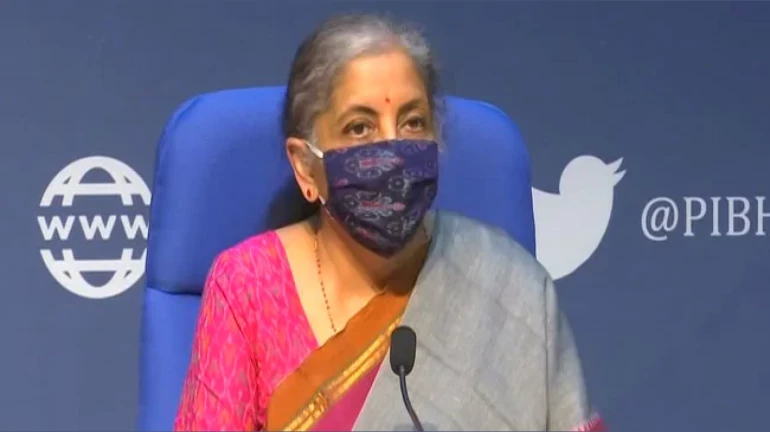
As the Union Finance Minister Nirmala Sitharaman is close to presenting the first paperless Union Budget on February 1, 2021, the team of Mumbai Live got in touch with industry experts and their expectations from the budget amidst the economic crisis in the country.
Mumbai-based Anand Kumar Bajaj, Founder, MD and CEO of PayNearby, speaking about the upcoming budget amidst the outbreak of the coronavirus and the subsequent lockdown stated, “PayNearby’s retail network has worked tirelessly to ensure seamless access to financial services, especially during the peak lockdown months last year. 93 per cent of our business correspondent network has been committed to working in tier 2 and tier 3 towns, serving as the sole point of cash disbursal in locations with limited financial infrastructure. However, the commission rates for BC services are very low to make it a profitable business. Additionally, BCs, by default, come under the 27 per cent GST and 5 per cent TDS on cash withdrawal even after the tax act having enabling provisions. This makes it difficult for them to stay afloat.” He further added, “We hope that this Budget takes into consideration the tough working condition of the BC network and make a few regulatory changes to ensure the viability of a community that has been vital to the cause of financial inclusion in the country. To continue sustaining the competitive advantage in Digital proliferation in India, restoring normal MDR on transactions will incentivise the digital ecosystem and facilitate a smoother growth trajectory towards innovation.”
Rajeev Shah, Senior Partner of Mumbai-based chartered accountancy firm, Bihani & Shah shared, " The norms regarding the MSME Act and policies which have been declared, while are fine, but there is no efficient system to follow up regarding violation. If there is a late payment or deferred payment, MSME's do not have a way to get the payment and there is no proper follow-up system in place. The MSME policies are frankly working in a reverse way because businesses are giving work to non-MSME as they don't have to stick to the 45 days payment window and other rigorous provisions of the MSME Act. So rather than helping small and medium businesses in India, this Act has created counter effects. I expect the government to address this concern and have a better and easier understanding of the Act. Currently, the compliance faced by small businesses due to GST procedures is a lot too and has increased overhead costs for businesses".
On the other hand, Pune-based Mandar Agashe, Founder, MD and Vice Chairman of Sarvatra Technologies stated, “With the world’s largest immunisation drive already underway, economic recovery will be the major focus of the government. Despite the wreck created, the pandemic has offered a huge impetus to digital penetration all throughout the country, which has accelerated in the unlock phase. It is therefore critical the budget draws out bold policy interventions to strengthen digital infrastructure which will eventually help in digitising the overall economy. The PoS terminal is financially, infrastructurally, and operationally far more affordable and far less demanding than an ATM. However, with just 4 million POS machines active in the country, the budget should consider making devices such as the PoS terminal / mini ATMs’ the most viable acquiring infrastructure for banks and fintech companies by offering an incentive such as a tax subsidy. Additionally, tax breaks in GST for merchants providing digital payments and tax benefits for companies helping build a digital infrastructure for friction-free digital onboarding too will catalyse the financial inclusion movement envisioned by the government. The government should also consider a dedicated fund to strengthen the digital infrastructure of co-operative banks across the county which will offer a big boost to a more inclusive financial system. Budgetary concessions such as a GST waiver for digital transactions along with incentivization, especially in semi-urban and rural India will further augment cashless payments. UPI has been a breakthrough, home-grown technology and it is important we replicate its success through newer and more innovative technologies. Fintechs and technology startups should be encouraged to invest more in R&D to introduce newer products and diversify into newer geographies. The upcoming budget should therefore consider offering tax benefits such as private investments being exempted. Besides, considering the amount of data being created and stored across industries growing at unprecedented rates, enhancing the security infrastructure to protect and manage data seamlessly should be another focus area. In the post-COVID world, digital infrastructure will be a game-changer for companies and countries and therefore it is important we take timely measures to ride this wave.”
Meanwhile, the infra sector also has high expectations from the Modi government. Alstom, which has more than 5,700 full times employees in India, has manufactured and supplied rolling stock to Mumbai Metro L3 and has also undertaken Signalling, Telecom and Power supply projects for various metro corporations including – Delhi, Bengaluru, Lucknow, Chennai Kochi, Mumbai L2 and 7, Jaipur, Nagpur, in line with the ‘Make-in-India’ initiative. Therefore, it will be interesting to see how the budget pans out for different sectors.





